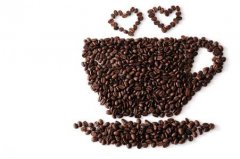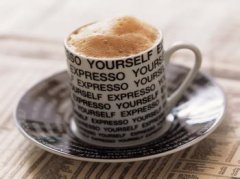A comparison between Chinese Tea Culture and Western Coffee Culture

Tea, coffee and cola are the three biggest drinks in the world. Tea and coffee are the biggest drinks in the world. Coffee in the life of Westerners has a unique role, whether in schools, companies, markets as usual at home, no one does not take coffee cup music in the middle; and tea in Chinese life is hard to change, it is not only a drink, but also carries Chinese culture. Tea and coffee represent two different civilizations.
(1)History of Tea Culture and History of Coffee Civilization
After Shennong tasted Baicao tea, at the end of Shang Dynasty and the beginning of Zhou Dynasty, Bashu people once ate tea and tasted tea at the end. In 1066 BC, King Wu conquered Zhou, and tea was already used as tribute. In the early days of primitive communes, tea became an item exchanged for goods. During the Warring States Period, tea has not necessarily been a model. During the Han Dynasty, tea became a tonic for Buddhist meditation. In the Wei, Jin and Northern and Southern Dynasties, tea was hidden in the Yangtze River and spread to the north, and the wind of drinking tea separated. Sui and Tang Dynasties, universal tea drinking, tea industry prosperous, the emergence of tea rooms, tea banquets, tea parties, initiatives to offer tea; at this time also produced the world's first tea civilization monograph "Tea Classic." At the end of the Song Dynasty, tea civilization reached its peak, and tea fighting, tribute tea and tea giving were popular in the world. By the Qing Dynasty, tea civilization doubled and developed deeply, and opera and folk arts entered the tea house. Qing tea has always been in a superior position in foreign commerce. With the development of history, people in all kinds of tea activities without interest, rich and rich tea culture.
By comparison, coffee beans were first boiled in boiling water around 1000 AD. Yemen began growing coffee around the 15th century. Venetian settlers brought coffee to Europe in early 1615. By 1683, Europe's first café had opened in Venice, and the most famous was the Florence Cafe, which closed in Piazza San Marco in 1720. In the process of colonization, the Dutch planted coffee in Malabar, India, and brought coffee to Java, Indonesia, in 1699. Coffee entered America in 1668 and became popular as an ugly drink in South America, followed by coffee houses in New York, Philadelphia, Boston and other North American cities. Coffee entered China Taiwan in 1884. Therefore, we can see that Chinese tea civilization has a long history than Western coffee civilization.
(2)Tea Civilization and Coffee Civilization
China is located in the east of the Eurasian Ocean, facing the sea, with a vast territory and rich products. Chinese culture is good at a relatively closed and especially wide astronomical space, civilization radical by semi-closed, temperate land-based astronomical conditions, agricultural self-reliance of the small-scale peasant economy that is,"family and country integration" patriarchal society resolution. For thousands of years, the dominant position of Chinese society was dominated by the traditional Confucian culture supported by the small-scale peasant economy, which was characterized by "moderation","regularity","imbalance" and "symmetry". Confucianism introduced the idea of "moderation" into Chinese tea civilization. Tea is born in the mountains, bearing the dew Jin Run, its taste bitter with sweet, drink it can make people's mind clear, passion warm, brain sober, these characteristics of tea and Confucianism advocated by the Middle Way consistent. Tea is a clean thing. By eating tea and tasting tea, we can examine ourselves and save people. We can also raise honesty and give tea a clean and noble character. Confucianism believes that by eating tea and tasting tea, we can find a harmonious atmosphere, enhance each other's friendship, coordinate interpersonal relations, and promote reconciliation. Confucianism derives the idea of harmony from impartiality. In Confucianism's eyes, harmony is the middle, harmony is the degree, harmony is appropriate, harmony is appropriate, harmony is the whole to the advantages, and there is no fault. And tea culture from tea picking, tea making, tea brewing, tea, tea, drink and so on a whole set of tea activities are all permeated with the thinking of harmony. When making tea,"sweet and sour sweet tune too, control the moderate amount of late"; when treating guests,"tea for the children, tea preparation thick meaning table"; when drinking tea,"drink good tea to know deep, praise this is grass in English"; tea environment and mood for "general affairs elegant to Xuhua, quiet far hidden Shen Yi". These are examples of Confucian moderation, clarity, humility and frugality.
Western civilization originated and developed in astronomical conditions relative to openness, and there was no agricultural region like China that could dominate the entire cultural intention. The birthplace of western culture is ancient Greece, Rome, islands and peninsulas on the north coast of the Mediterranean Sea. Island civilization is not carried out by agriculture, but by competitive commerce. The development of commodity economy and the open ocean geography make westerners 'nature normal and active. They have an independent morality, a spirit of rejection and a concept of trade. Western countries survive in wars, mutual aid and struggles. Astronomical conditions and the normal development of productive forces do not allow Westerners to "think twice" and must resolutely make arbitrary decisions and actions. The comparatively narrow territory of the European states did not create artificial economic conditions for self-reliance and temporary isolation like modern China. Territorial reform, national migration, consistency in obsolete customs, myths and official legends laid a deep foundation for cultural exchanges and mutual contacts between them, and also created cultural openness.
Western philosophers regard reason as a fundamental color symbol to distinguish man from animals, which lays the foundation for the rational keynote of western civilization. Western culture is a perceptual civilization, which aims to construct an abstract ideal world in self-understanding, taking those difficult subjective rules as the quality of the world, and then achieving the perceptual mixture of the whole country. This is also evident in coffee culture. Coffee brewing from grinding coffee beans to utensils, and then to the water temperature ratio have strict requirements, brewing out aroma, taste sticky. Such as fresh water after boiling, will contain the right amount of carbon dioxide corrosion can increase the flavor of coffee, but continue to let the water boil will make carbon dioxide evaporation reduction, so that the best water temperature is 95℃, the water temperature is too low will make coffee taste can not be fully released, the water temperature is too high will make coffee factors deteriorate, too much and not good. Another example is that coffee for one person is 8 grams light, 12 grams strong, and 120cc water. All of this shows the rationalism of coffee civilization.
Important Notice :
前街咖啡 FrontStreet Coffee has moved to new addredd:
FrontStreet Coffee Address: 315,Donghua East Road,GuangZhou
Tel:020 38364473
- Prev

Coffee Culture in the Workplace A Kind of Corporate Civilization
Let's get familiar with coffee culture in the workplace. It was always a decent Office, always with two shiny coffee pots, and coffee was provided for a fee round the clock. A little more fastidious, so that there will be a special small coffee shop for employees to relax and enjoy. So, here, the tinkling music that comes back when the metal spoon stirs the coffee melts.
- Next

The history and culture of Chinese coffee When did coffee come into China?
In Europe, coffee culture can be said to have been very weak, then, coffee into China when it? How long has it been in China? The earliest coffee cultivation in mainland China began in Yunnan Province in the early 20th century when a French missionary brought the first coffee seedlings to Binchuan County in Yunnan Province. Now in China's Guangdong, Guangxi, Yunnan, Taiwan and Fujian Xiamen and other places have a
Related
- How did the Salvadoran coffee industry develop in Central America?
- What exactly does the golden cup extraction of coffee mean?
- The Origin of Coffee flower
- [2023 Starbucks World Earth Day] there are more meaningful things besides free Starbucks coffee!
- What kind of coffee is there in Spain? 9 Flavors of Spanish Coffee
- Aromatic African coffee| Kenya's coffee culture and historical production area
- Liberica Coffee Bean knowledge: the characteristics of Liberian Coffee beans of the three original species of Coffee beans
- The origin and formula of Spanish latte introduces the taste characteristics of Bombon coffee in Valencia, Spain.
- How to adjust the solution of over-extracted coffee
- What is the tasting period of coffee beans? What is the period of coffee and beans? How should coffee wake up and raise beans?

